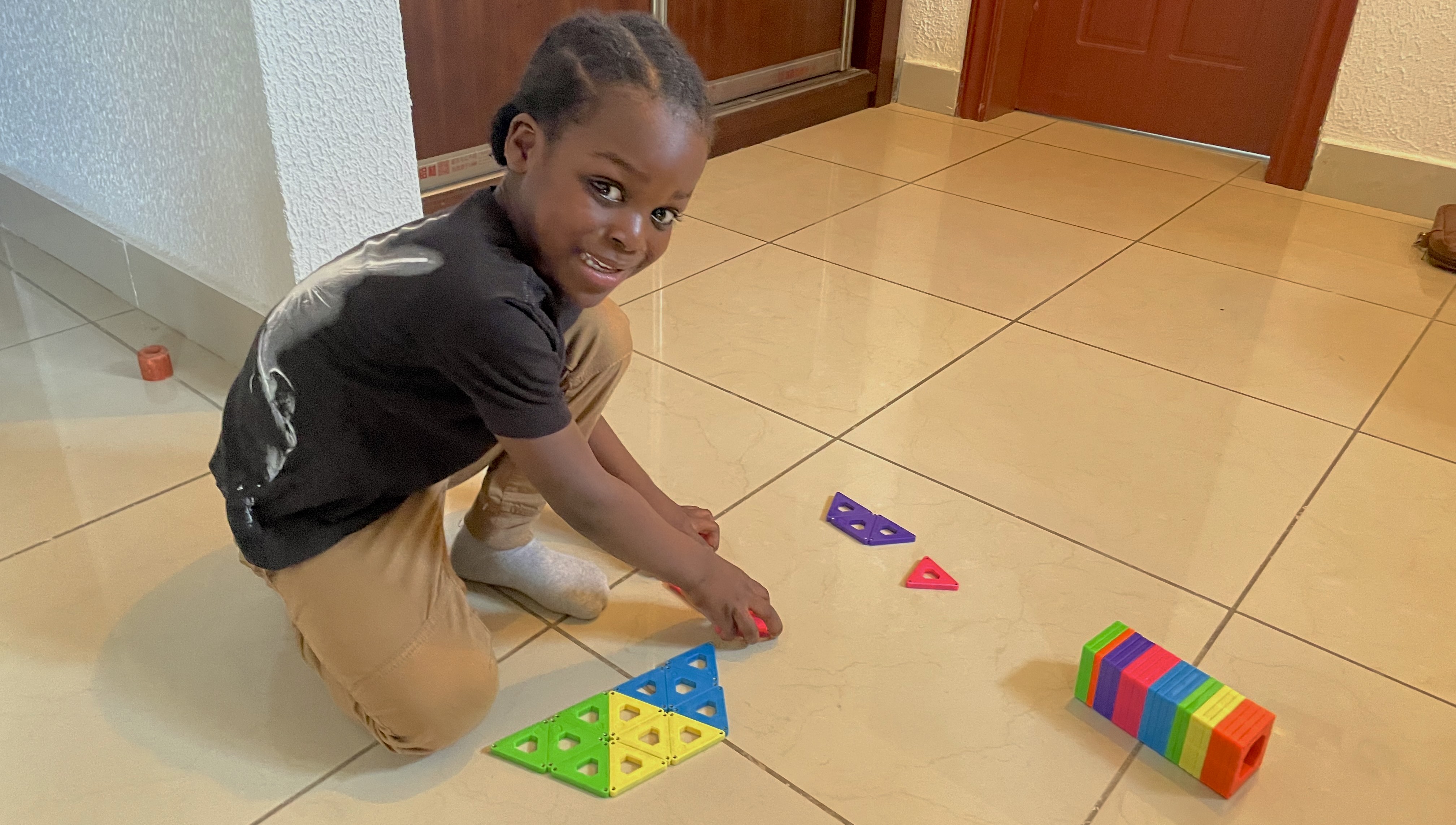
Aug 26, 2022 2:48:59 PM
In his four years of existence, my son Thaddeus has developed a knack for building and connecting things. If he gets a bag of jumbo Legos, he will create an entire jungle filled with imaginary animals! If my wife and I give him a new 100-piece puzzle, he usually ends up putting it together within 24 hours.
If he sees a bunch of his books scattered all over the place, he will either line the books up or stack them neatly in a tall pile. With everything that he creates, he is adamant about making sure it is done with precision.
All that said, it came as no surprise to me when Thaddeus rushed into my bedroom one rainy morning, excited and eager to show me another one of his new creations!
Using a colorful assortment of triangle magnets, he diligently connected them to form a big multi-colored hexagon. After forming the hexagon, he then disconnected it to show me that the hexagon was formed by six smaller color-coded triangles.
As his father, I was so proud of his discovery that the math teacher in me had to unpack this experience further. Many people may watch our video and sum it up just as a cute little boy playing with magnets. What may get lost in the viewing experience are three key lessons that Thaddeus unknowingly teaches all of us teachers about how we need to shift agency back to our learners in the math classroom.
Here are a few of my thoughts:
It’s one thing for us to say we want our math learners to take full responsibility for their own learning, but it’s another to ensure they have ample opportunities to take charge of their learning.
If we can instill that confidence in children as young as Thaddeus, imagine how many more learners will enter school with both a strong interest and a firm foundation in math. At any grade level, these kinds of lessons should serve as the blueprint for meaningful learning in the math classroom.
Kwame Sarfo-Mensah is the founder of Identity Talk Consulting, a global educational consulting firm that specializes in developing K-12 teachers into identity-affirming educators. Throughout his 17-year career as a classroom teacher, author, and consultant, Kwame has earned numerous accolades for this work, which include being honored as the 2019 National Member of the Year by Black Educators Rock, Inc. and being recognized as a Top Education Influencer by brightbeam, Inc. in 2021 and 2022. His newest book, "Learning to Relearn: Supporting Identity in a Culturally Affirming Classroom", is out now.
Few issues in education spark more tension and debate than standardized testing. Are they a tool for equity or a burden on students? A necessary check on school systems or a flawed measure of...
Charter schools are public schools with a purpose. Operating independently from traditional school districts, they're tuition-free, open to all students, and publicly funded—but with more flexibility...
Despite the benefits of a diverse teaching force, prospective teachers of color fall out of our leaky preparation pipeline at every stage: preparation, hiring, induction, and retention. Here’s what...
Ed Post is the flagship website platform of brightbeam, a 501(c3) network of education activists and influencers demanding a better education and a brighter future for every child.
© 2020-2025 brightbeam. All rights reserved.
Leave a Comment